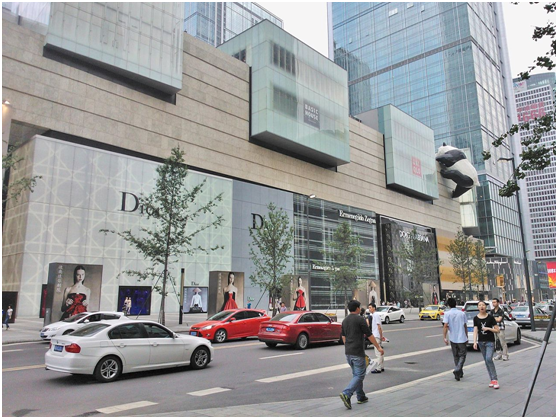Xindu No. 1 Middle School of Chengdu
ChengDu City Sichuan Province
Chengdu is a sub-provincial city which has served as capital of China's Sichuan province. It is one of the three most populous cities in Western China (the other two are Chongqing and Xi'an). As of 2014 [update]the administrative area houses 14,427,500 inhabitants, with an urban population of 10,152,632. At the time of the 2010 census, Chengdu was the 5th-most populous agglomeration in China, with 10,484,996 inhabitants in the built-up area including Xinjin County and Deyang's Guanghan City.
The surrounding Chengdu Plain is also known as the "Country of Heaven" and the "Land of Abundance". Its prehistoric settlers included the Sanxingdui culture. Founded by the state of Shu prior to its incorporation into China, Chengdu is unique as a major Chinese settlement that has maintained its name (nearly) unchanged throughout the imperial, republican, and communist eras. It was the capital of Liu Bei's Shu during the Three Kingdoms Era, as well as several other local kingdoms during the Middle Ages. After the fall of Nanjing to the Japanese in 1937, Chengdu briefly served as the capital of China. It is now one of the most important economic, financial, commercial, cultural, transportation, and communication centers in Western China. Chengdu Shuangliu International Airport is one of the 30 busiest airports in the world, and Chengdu Railway Station is one of the six biggest in China. Chengdu also hosts many international companies and more than 12 consulates. More than 260 Fortune 500 companies have established branches in Chengdu.
sichuan at a closer look Panda in Chengdu
An Introduction to Si Chuan Province
Sichuan,formerly romanized Szechuan, is a province in southwest China occupying most of the Sichuan Basin between the Himalayas on the west, the Daba Mountains in the north, and the Yungui Plateau to the east. Sichuan's capital city is Chengdu.
In antiquity, Sichuan was the home of the ancient states of Ba and Shu. Their conquest by Qin strengthened it and paved the way for the First Emperor's unification of China under the Qin Dynasty. During the Three Kingdoms era, Liu Bei's Shu was based in Sichuan. The area was devastated in the 17th century by Zhang Xianzhong's rebellion and the area's subsequent Manchu conquest, but recovered to become one of China's most productive areas by the 19th century. During the Second World War, Chongqing served as the temporary capital of the Republic of China, making it the focus of Japanese bombing. It was one of the last mainland areas to fall to the Communists during the Chinese Civil War and was divided into four parts from 1949 to 1952, with Chongqing restored two years later. It suffered gravely during the Great Chinese Famine of 1959–61 but remained China's most populous province until Chongqing Municipality was again separated from it in 1997.
The people of Sichuan speak a unique form of Mandarin, which took shape during the area's repopulation under the Ming. The family of dialects is now spoken by about 120 million people, which would make it the 10th most spoken language in the world if counted separately. The area's warm damp climate long caused Chinese medicine to advocate spicy dishes; the native Sichuan pepper was supplemented by Mexican chilis during the Columbian Exchange to form modern Sichuan cuisine, whose dishes—including Kung Pao chicken and Mapo tofu—have become staples around the world.
Abbreviation: Chuan 川or Shu蜀
Capital: Chengdu
Area: Approximately 480,000 square kilometers
Population: 84.74 million
Location: In southwest China and the upper reaches of the Yangtze River

English Teachers Number required: 1Post
Requirements: BA ,TESOL and some teaching experience preferred
Monthly Salary: 12,000 RMB or above
Contract Period: 1st Mar, 2025 - 15th Jan, 2026
1st Sep, 2024 - 15th Jul, 2025
Teaching hours: 16-18 classes per week / two days off per week. (45 minutes/class)
Age of students: Middle School Students
Free meals: the school will provide free meals to the teacher
Accommodation: provide good accommodation, telephone, air-condition ,Color TV, refrigerator, A-Z miscellaneous items (bedding, blanket, pillow, towel, sleeper, etc)
Internet access (Free): computer with internet access in the apartment.
Number of students per class in the centre: 45-60
Other Perks: Free Mandarin lessons
Work permit : The school will provide work permit for China at no cost to the teacher.
Air-ticket Reimbursement: On completion of a school term contract, an one way air-ticket reimbursement up to a max of RMB 2000 will be made.
Closest Airport: Chengdu Shuangliu International Airport

